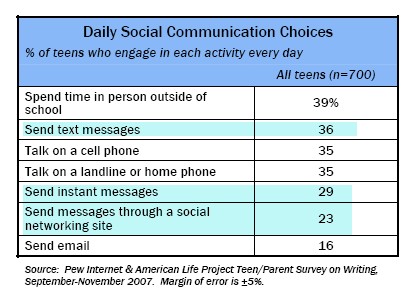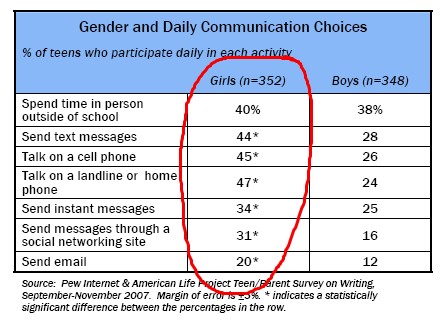My thesis could be based on:
“The rapid emergence of new communication technologies and new uses of older technologies, such as telephone, also provide new opportunities and dilemmas. A variety of electronic media for interactive health communication (for example, teh Internet, CD-ROMs, and personal digital assistants [PDAs]) can serve as source of individualized health information, reminders, and social support for health behavior change (Viswanath, 2006; Ahern, Phalen, Le, and Goldman, 2007). These new technologies also may connect individuals with similar health concerns around the world (Bukachi and Pakenham-Walsh, 2007). This may be especially important for people with rare or stigmatized health conditions. However, the new products of the communication revolution have not equally reached affluent and more disadvantaged populations (Viswanath, 2005, 2006).
E-health strategies are becoming an important parto f the armamentarium of strategies for those in health education adn health behavior. Internet and computer-based applications, along with wireless technologies, can support many of the Health Behavior and Health Education strategies based on theories presented in [that] book. Use of new technologies should be based on theories of health behavior and be evaluated (Ahern, Phalen, Le, and Goldman, 2007). Otherwise, we risk being technology-driven instead of outcome-driven.
At the same time, new technologies have the potential to cause harm through misleading or deceptive information, promotion of inappropriate self-care, and interference in the patient-provider relationship (Science Panel on Interactive Communciation and Health, 1999), although the empirical evidence on harms remains to be documented. Interactive health communcations provide new options for behavioral medicine and preventive medicine (Noell and Glasgow, 1999; Fotheringham, Owies, Leslie, and Owen, 2000) and are altering the context of health behavior and health education as they unfold and as their effects are studied (Hesse and others, 2005).”
Excerpt from pages 8-9 of Health Behavior and Health Education: Theory, Research, and Practice by Karen Glanz, Barbara K. Rimer, and K. Viswanath.




